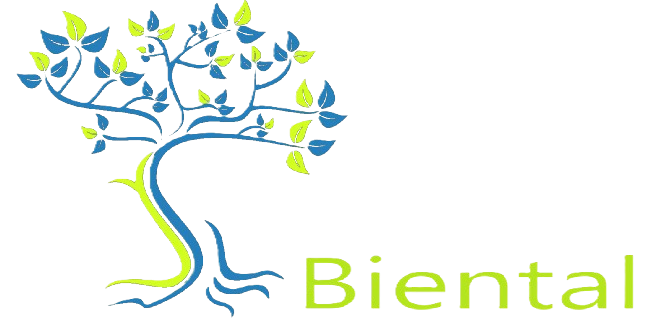
Understanding IFRS S1
The International Financial Reporting Standards (IFRS) are a set of international accounting standards established to enhance transparency and comparability in financial reporting. Specifically, IFRS S1 is designed to guide organisations in the preparation of financial statements, ensuring they accurately reflect their financial position and performance. The primary purpose of IFRS S1 is to provide a common accounting framework that businesses can use to communicate their financial information to stakeholders, investors, and regulatory bodies worldwide.
One of the key principles underlying IFRS S1 is the notion of true and fair representation of financial data. This means that the financial statements must present a complete and unbiased view of an entity’s performance, ensuring that they adhere to the highest standards of integrity. In doing so, IFRS S1 seeks to minimise ambiguity and promote clarity in financial reporting, which is instrumental in fostering trust among investors and other stakeholders.
The adoption of IFRS S1 holds significant implications for countries, particularly those like Turkey that are seeking to attract foreign investment and enhance their standing in global markets. By aligning financial reporting practices with international standards, businesses operating in Turkey can improve their competitiveness and appeal to international investors who often prefer to engage with companies that utilise standardised reporting frameworks. Moreover, this compatibility can accelerate integration into global financial markets, simplifying cross-border transactions and partnerships.
In addition, the implementation of IFRS S1 ensures that financial statements are prepared consistently across different jurisdictions. This uniformity not only aids investors in making informed decisions but also facilitates regulatory compliance and oversight. Consequently, the move towards adopting IFRS S1 marks a crucial step for Turkey in acknowledging and integrating traditional values with modern financial practices, driving economic growth and stability through enhanced corporate governance and accountability.
Cultural Perspectives: The Traditional Values of Turkey
Turkey’s rich cultural heritage is deeply rooted in a blend of historical, religious, and social influences that shape its traditional values. These values are primarily derived from Islamic teachings, Ottoman customs, and local folklore, fostering a commitment to familial loyalty, social harmony, and community cohesion. The collective nature of Turkish society emphasizes group identity over individuality, which often influences business practices and decision-making processes.
In the context of business, traditional values manifest in various ways. Trust and relationships are paramount; thus, business transactions frequently rely on personal integrity and established networks rather than purely contractual agreements. This embedded social framework can create challenges when aligning with the principles of International Financial Reporting Standards (IFRS) S1, which prioritise transparency, standardisation, and accountability. Turkish companies may find that forging strong relational ties contradicts the rigid, quantitative nature of IFRS compliance.
Moreover, the role of religion in Turkish culture cannot be overstated. Islamic principles promote ethical behaviour and community-centric practices, which can sometimes conflict with the more impersonal and mechanistic aspects of international accounting standards. The value placed on ethical conduct and moral responsibility may lead companies to prioritise corporate social responsibility over strict adherence to IFRS guidelines, potentially creating a rift in the dual demands of maintaining traditional values while adhering to modern regulations.
The result is a complex interplay where Turkish companies must navigate their traditional values alongside the expectations of global financial reporting. The imperative to harmonise these often opposing forces presents a considerable challenge. Yet, this journey also presents an opportunity for companies to innovate and adapt their operational practices, ensuring they can meet international standards without sacrificing their cultural integrity.
Challenges and Opportunities in Transitioning to IFRS S1
The transition to International Financial Reporting Standards (IFRS) S1 presents a complex landscape for Turkish businesses, encompassing both notable challenges and significant opportunities. One of the primary hurdles lies in the resistance from various stakeholders, including management, employees, and investors. The apprehension towards adopting IFRS S1 may stem from a lack of familiarity with international standards, creating a sense of uncertainty about the benefits and implications of such a transition. Organizations must work diligently to communicate the advantages of IFRS S1 clearly to mitigate these concerns and gain buy-in from all involved parties.
Another critical challenge is the pressing need for extensive education and training on the IFRS standards. Many businesses may lack the necessary expertise in-house, compelling them to seek external resources or training programs. This demands not only investment in education but also time, which may divert focus from day-to-day operations. The commitment to understanding and implementing IFRS S1 creates a significant burden, especially for smaller organisations that may already be operating with limited resources.
Despite the aforementioned challenges, the transition to IFRS S1 offers valuable opportunities that could enhance Turkey’s economic landscape. Specifically, adopting these international standards can pave the way for improved access to global markets. As businesses align their financial reporting with internationally recognised practices, they may find it easier to attract foreign investment and expand their operations abroad. Furthermore, adopting IFRS S1 enhances credibility with investors by showcasing transparency and adherence to a standardised reporting framework. This increased transparency could foster greater trust and enable businesses to tap into potential economic growth. Thus, while the path to IFRS S1 may appear daunting, the long-term benefits can significantly outweigh the initial challenges faced during the transition.
Strategies for Successful Adoption of IFRS S1 in Turkey
The transition to International Financial Reporting Standards (IFRS) S1 represents a significant shift for Turkish companies and regulators, necessitating a multifaceted approach to ensure a successful adaptation. One of the most effective strategies involves establishing strong government support. The government can facilitate this transition by creating policies that encourage alignment with IFRS S1, providing incentives for companies that comply, and ensuring that there are sufficient resources available to aid businesses in the adjustment process.
Another critical component is the development of comprehensive educational programs aimed at both current professionals and future accountants. Institutions of higher learning, alongside management training programs, should incorporate IFRS S1 training into their curricula to prepare the workforce adequately. This education should not be limited to the technical aspects of IFRS S1 but should also emphasize the strategic importance of adopting these standards for improving transparency, enhancing investor confidence, and fostering international business relationships.
Collaboration with international accounting bodies is also pivotal in this transition. By engaging with organisations such as the International Financial Reporting Standards Foundation (IFRS Foundation), Turkish regulatory bodies can gain invaluable insights into best practices and guidance for adopting IFRS S1. Such partnerships can help align local practices with global expectations, ensuring that Turkish firms remain competitive in the international market.
Finally, cultivating a culture of transparency and accountability in financial reporting is essential for the successful adoption of IFRS S1. This involves encouraging companies to commit fully to ethical reporting guidelines and fostering an environment where stakeholders prioritise integrity and openness. By striking a balance between traditional values and necessary adjustments to embrace global standards, Turkey can navigate this complex transition effectively, thereby enhancing its economic prospects and global standing.
